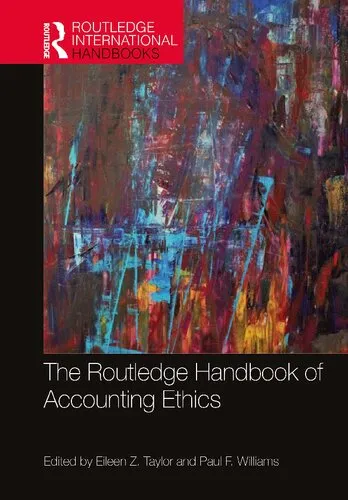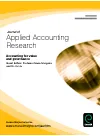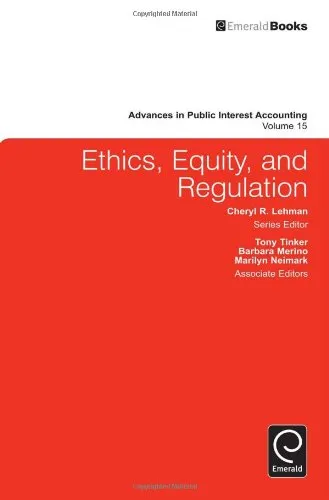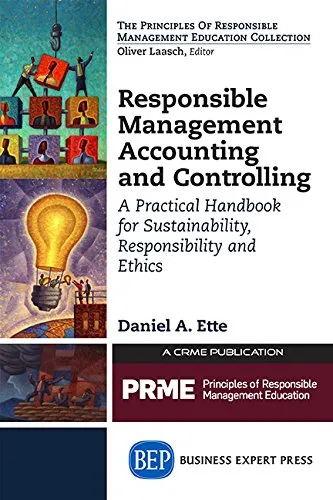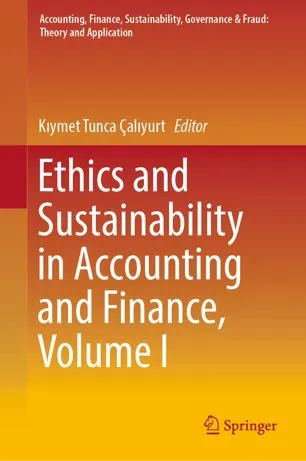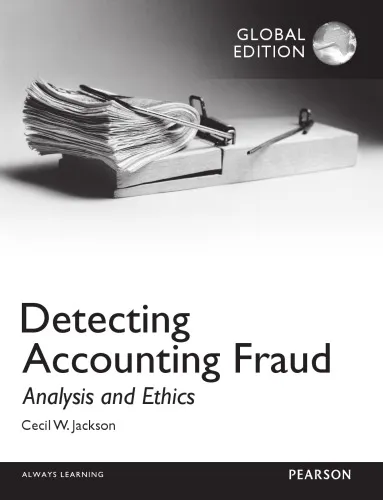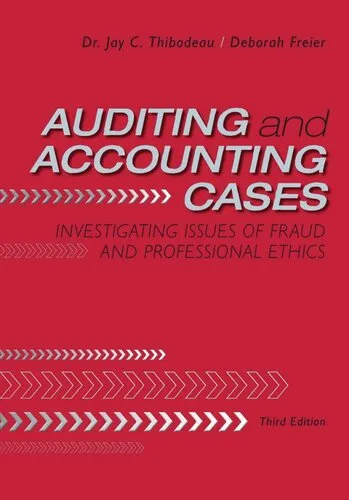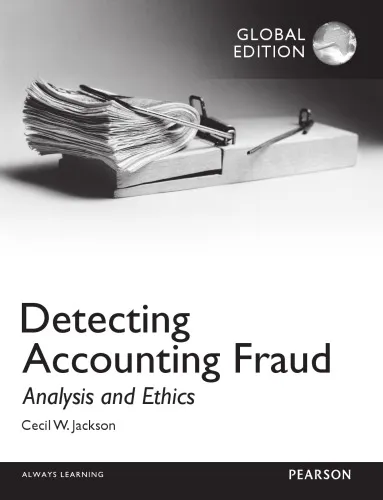The Routledge Handbook of Accounting Ethics
4.3
Reviews from our users

You Can Ask your questions from this book's AI after Login
Each download or ask from book AI costs 2 points. To earn more free points, please visit the Points Guide Page and complete some valuable actions.Related Refrences:
Introduction to "The Routledge Handbook of Accounting Ethics"
"The Routledge Handbook of Accounting Ethics," authored by Eileen Z. Taylor and Paul F. Williams, is an essential compendium that articulates the evolving landscape of ethical standards in the field of accounting. In an era marked by rapid technological advancements, globalization, and complex financial systems, the book delves deep into the moral imperatives and responsibilities that accounting professionals face. Emphasizing both theoretical and practical perspectives, it explores the multifaceted challenges and opportunities within accounting ethics.
A Detailed Summary of the Book
The handbook presents a comprehensive discourse on the pivotal role of ethics in accounting, structured across several critical dimensions. It commences with a historical overview, tracing the evolution of ethical practices in accounting and examining influential regulatory frameworks. Through its detailed analyses, the book investigates how ethics underpin the broader objectives of financial reporting and auditing.
The authors devote significant attention to contemporary issues such as corporate governance, tax ethics, and environmental accountability. Furthermore, the book explores the impact of technology and data analytics on ethical decision-making, providing insights into both the challenges and solutions posed by these developments.
By integrating case studies, expert opinions, and regulatory perspectives, the handbook creates an interactive dialogue about real-world ethical dilemmas. It emphasizes the importance of cultivating ethical awareness and professional judgement among accountants, equipping readers with the necessary tools to navigate ethical complexities in their practice.
Key Takeaways
- Understanding the historical context of accounting ethics and its influence on current practices.
- Examining the intersection between technological advancement and ethical accounting practices.
- Developing a nuanced comprehension of ethical issues in corporate governance and financial reporting.
- Building a framework for ethical decision-making in diverse accounting scenarios.
- Recognizing the role of professional judgement and ethical standards in maintaining public trust.
Famous Quotes from the Book
"Ethics in accounting is not merely a set of theoretical principles, but a living practice that sustains trust in financial systems."
"The core of accounting ethics rests on transparency and integrity, values that form the backbone of financial stewardship."
Why This Book Matters
"The Routledge Handbook of Accounting Ethics" stands out as a vital resource for both seasoned accountants and those new to the profession. It contributes significantly to the ongoing dialogue about the role of ethics in shaping a trustworthy financial ecosystem. By tackling some of the most pressing ethical challenges of our time, the book encourages accountants to become conscientious stewards of financial information.
Its relevance is heightened in today’s world where the repercussions of financial misconduct are far-reaching and severe. Through insightful exploration and practical guidance, Taylor and Williams offer an indispensable roadmap for integrating ethical principles into everyday accounting practices. Ultimately, this handbook empowers professionals to uphold the highest ethical standards, fostering greater confidence in financial systems worldwide.
Free Direct Download
You Can Download this book after Login
Accessing books through legal platforms and public libraries not only supports the rights of authors and publishers but also contributes to the sustainability of reading culture. Before downloading, please take a moment to consider these options.
Find this book on other platforms:
WorldCat helps you find books in libraries worldwide.
See ratings, reviews, and discussions on Goodreads.
Find and buy rare or used books on AbeBooks.
1337
بازدید4.3
امتیاز0
نظر98%
رضایتReviews:
4.3
Based on 0 users review
Questions & Answers
Ask questions about this book or help others by answering
No questions yet. Be the first to ask!
